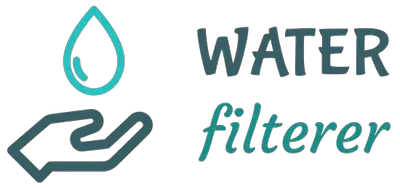As a homeowner, you’re always looking for ways to make your life easier and save money. One way to do both of those things is by installing a shower head filter. But will a shower head filter actually help your hair?

The answer may surprise you. Keep reading to learn more.
Is My Shower Too Hard?
Water that is considered “hard” contains many minerals, including calcium and magnesium. Hot water makes these minerals less likely to stick together, which inevitably results in the formation of mineral deposits (scale) left behind on faucets.
Shower heads are also susceptible to scale buildup; it’s why you’re likely to find water spots on your shower walls and doors after a particularly hard shower.
In the case of hair, however, that deposit buildup is especially damaging. A recent study found that soap scum from mineral-rich water can cause proteins in hair (keratin) to break down and swell up temporarily.
When hair swells, it also stretches. If the water is hard enough and you’ve been scrubbing your hair with a shampoo containing sodium lauryl sulphate (SLS), the proteins in your hair can stretch to their limits and eventually snap back into place, causing breakage.
In fact, when researchers tested this theory on human hair samples using synthetic shower water in a lab setting, they found that synthetic hard water was damaging for keratin in a way similar to SLS.
So what does this mean in terms of whether or not a shower filter will help?
To answer that question, let’s look at how they work. A shower head filter attaches directly to your existing shower arm via an adapter.
The most common types of shower head filters trap minerals in their mesh-like structure. Other types of shower head filters use activated carbon or even ceramic balls to get rid of unwanted impurities.
As the water passes through the filter, these elements remove contaminants like chlorine, iron, mercury and even some pesticides. By removing these harmful chemicals before they touch your hair, you’ll keep them from causing damage that could lead to breakage.
Of course, it’s important to remember that no matter what kind of filter you choose, you still need to properly shampoo your hair. A filter won’t make up for using SLS when cleansing your hair. So don’t skimp out on quality shampoos if you want healthy locks.
Also, remember that a filter only works as well as it’s been maintained. After a few months, you’ll need to replace the cartridge in your shower head filter. If you don’t, those minerals will start depositing onto your scalp and follicles once more
Bottom line? A shower head filter is certainly worth trying if you have hard water at home. With proper care, they can help reduce damage from mineral deposits left behind by hard water.
Do filtered shower heads work for hair?
Shower filters are a great way to reduce the amount of chlorine in your shower water. But do they work for hair? Let’s take a look at the evidence.
You may have heard that filtered shower heads can help improve your hair health. This is because chlorine, which is found in most tap water, can be damaging to hair.
Filtered shower heads can help reduce the amount of chlorine in your water, which may help improve your hair health. However, there is limited research on this topic, so it is unclear whether filtered shower heads actually provide any benefits for hair.
At this point, it is hard to say definitively whether filtered shower heads are good for your hair or not. However, they are a simple way to filter chlorine from your shower water. So if you want to reduce the amount of chlorine in your shower water, a filtered shower head is one simple solution.
Do Water Filters help with hair loss?
There are many causes of hair loss, including medications, autoimmune disorders, and hereditary conditions. Unfortunately, there are no definitive studies that link hard water to hair loss. At this point in time, it is not known whether switching your water filter will help prevent hair loss or even reverse existing hair damage due to hard water.
However, research has shown that hard water can be quite damaging for protein structures like keratin found in the human body (including the scalp).
As mentioned above, when proteins are exposed to elements found in hard water, they can lose their structure and become damaged. This damage can be seen in hair samples when researchers test the effects of hard water on hair.
So while there are no studies that directly link hard water with hair loss, it is still a good idea to reduce your exposure to harmful elements found in tap water. A filtered shower head will help reduce chlorine from your water, but it won’t remove other components that may affect your scalp and follicles such as lead or copper.
Does a shower filter help with dandruff?
Dandruff is a common scalp condition that can cause white flakes to appear on the hair and skin. While there are many commercial products available to treat dandruff, some people may wonder if using a shower filter can help.
Normally, dandruff is caused by dry skin that can cause irritation and inflammation that results in dandruff. This may be why some researchers have found that hard water exacerbates dandruff conditions
Since hard water contains high amounts of minerals like calcium and magnesium, it may exacerbate skin irritation that causes dandruff. If your shower head filter reduces these minerals through softening, you may experience fewer instances of irritation and flaking associated with dandruff over time.
Final Thoughts
If you want to improve your hair health, using a shower head filter is one simple step that may help. While it’s not proven that filtered shower heads can prevent or reduce hair loss, they do reduce chlorine which is known to damage keratin structures in the body including the scalp.
It is quite possible that by limiting your exposure to chlorine you will experience fewer instances of irritation and inflammation caused by hard water minerals like calcium and magnesium.

